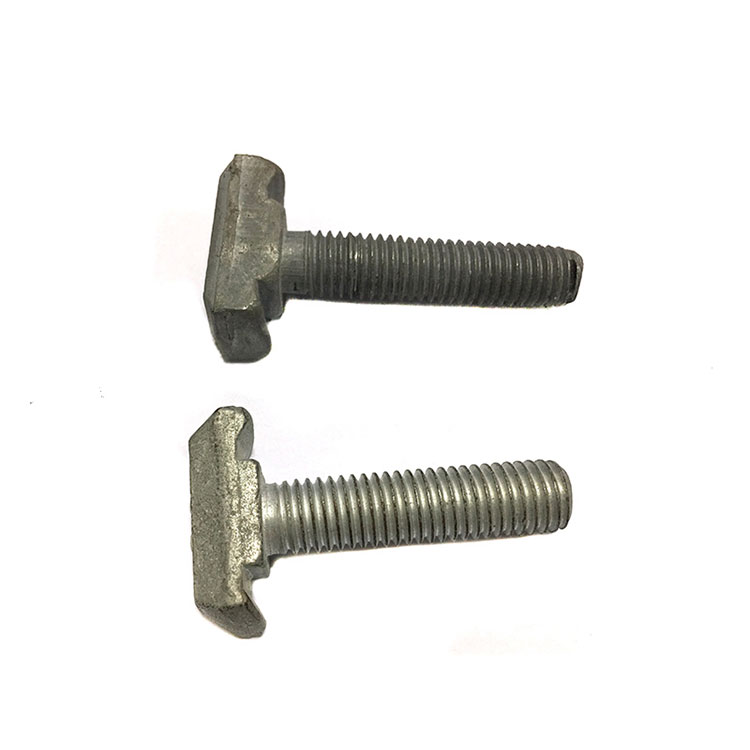Bolts of Strength: Exploring Common Materials Used in Manufacturing
2023-12-05
Introduction:
In the world of construction, machinery, and everyday hardware, bolts are the unsung heroes that hold things together. These essential fasteners come in various shapes and sizes, and the choice of material plays a pivotal role in determining their strength, durability, and corrosion resistance. In this blog post, we will delve into the common materials used in manufacturing bolts, shedding light on the characteristics that make each material suitable for specific applications.
1. Steel: The Workhorse of Bolts:
- Carbon Steel:
- Properties: Carbon steel is a popular choice for manufacturing bolts due to its affordability, strength, and versatility. It is alloyed with carbon, providing hardness and durability.
- Applications: Carbon steel bolts find applications in construction, automotive, and general hardware.
- Alloy Steel:
- Properties: Alloy steel bolts contain additional alloying elements like chromium, nickel, or molybdenum, enhancing their strength, hardness, and resistance to wear and corrosion.
- Applications: Alloy steel bolts are used in critical applications where higher tensile strength and corrosion resistance are required, such as in aircraft and high-stress machinery.
2. Stainless Steel: The Corrosion-Resistant Option:
- Properties: Stainless steel bolts are known for their exceptional corrosion resistance due to the presence of chromium. They also offer good strength and durability.
- Applications: Stainless steel bolts are widely used in marine environments, food processing, chemical industries, and applications where corrosion is a concern.
3. Brass: The Corrosion-Resistant Alloy:
- Properties: Brass bolts are made from a copper-zinc alloy, providing good corrosion resistance, ductility, and a golden appearance.
- Applications: Brass bolts are often used in decorative and non-corrosive environments, such as in electrical and plumbing applications.
4. Aluminum: The Lightweight Option:
- Properties: Aluminum bolts are lightweight, corrosion-resistant, and have good thermal conductivity. However, they are not as strong as steel or stainless steel.
- Applications: Aluminum bolts are suitable for lightweight structures, aerospace applications, and situations where weight is a critical factor.
5. Titanium: The High-Strength, Lightweight Choice:
- Properties: Titanium bolts offer an excellent strength-to-weight ratio, corrosion resistance, and high heat resistance. They are more expensive than other materials.
- Applications: Titanium bolts find applications in aerospace, medical implants, and high-performance sports equipment where strength, lightness, and corrosion resistance are crucial.
6. Nickel Alloys: The Corrosion-Resistant Specialists:
- Properties: Nickel alloy bolts, such as Inconel, offer superior corrosion resistance, high-temperature strength, and resistance to oxidation.
- Applications: Nickel alloy bolts are used in extreme environments, including chemical processing, aerospace, and marine applications.
7. Coated or Plated Bolts: Enhancing Performance:
- Properties: Bolts made from carbon or alloy steel can be coated or plated with materials like zinc (galvanized), cadmium, or chrome for added corrosion resistance and aesthetic appeal.
- Applications: Coated or plated bolts are commonly used in outdoor and corrosive environments to enhance their durability.
Conclusion:
Bolts, though seemingly simple, are crafted from a variety of materials to meet the diverse demands of different applications. From the robust strength of steel to the corrosion resistance of stainless steel and the lightweight elegance of aluminum, each material brings its own set of characteristics to the world of fasteners. Selecting the right bolt material is a crucial step in ensuring the longevity, reliability, and performance of structures and machinery across various industries.



